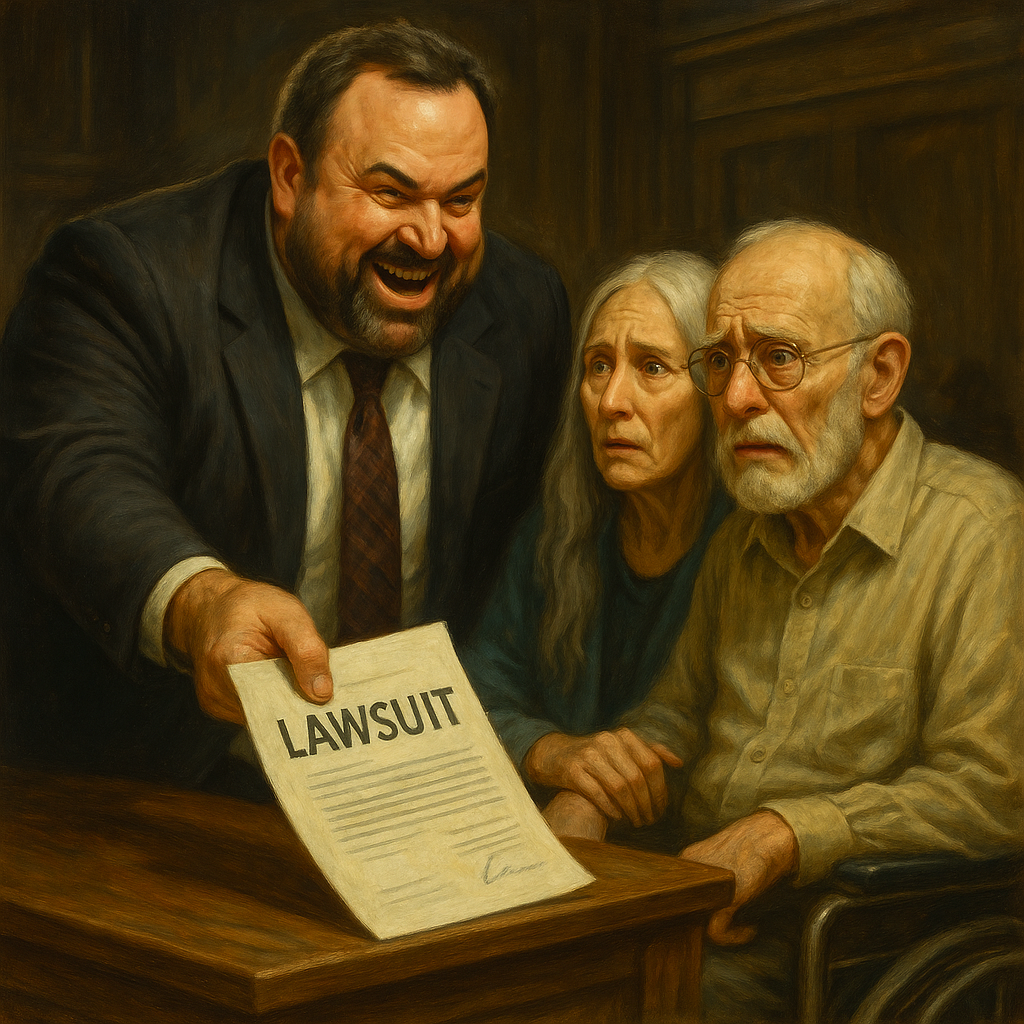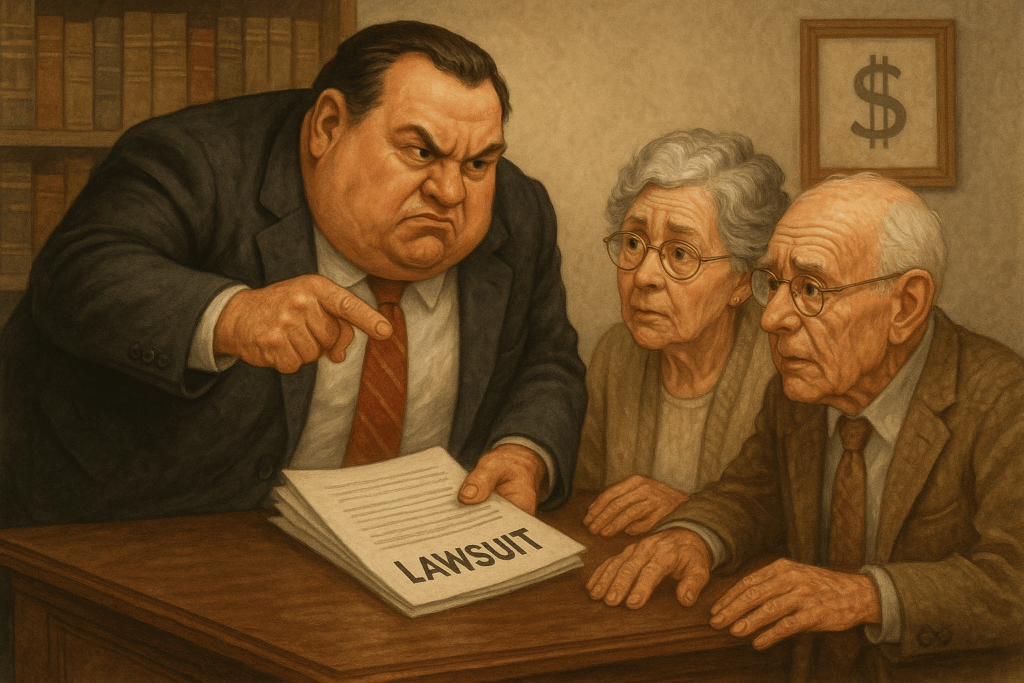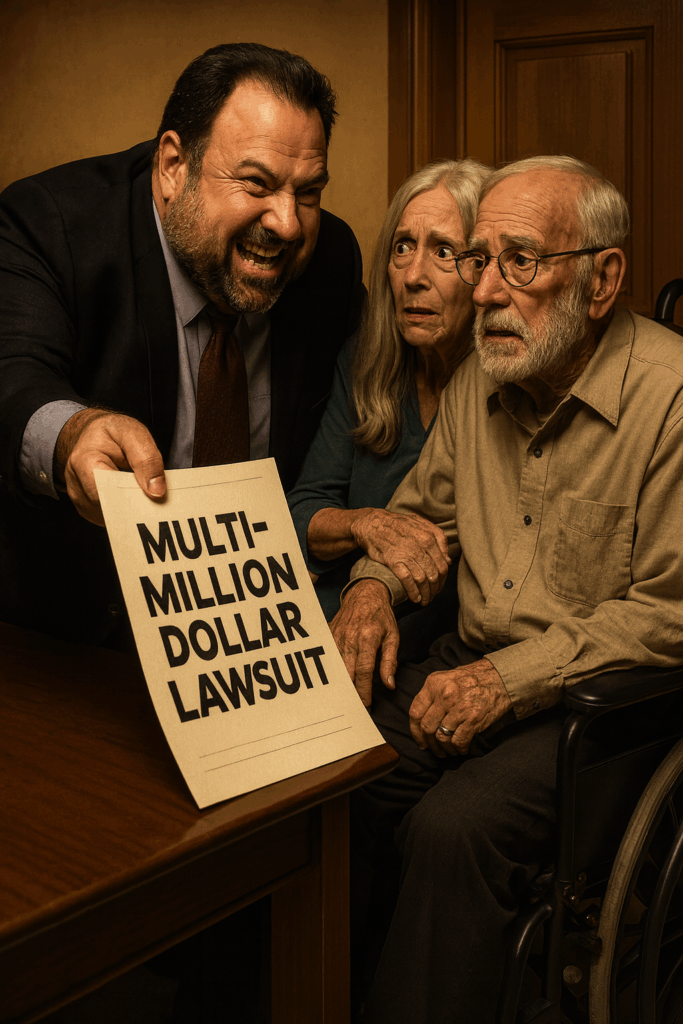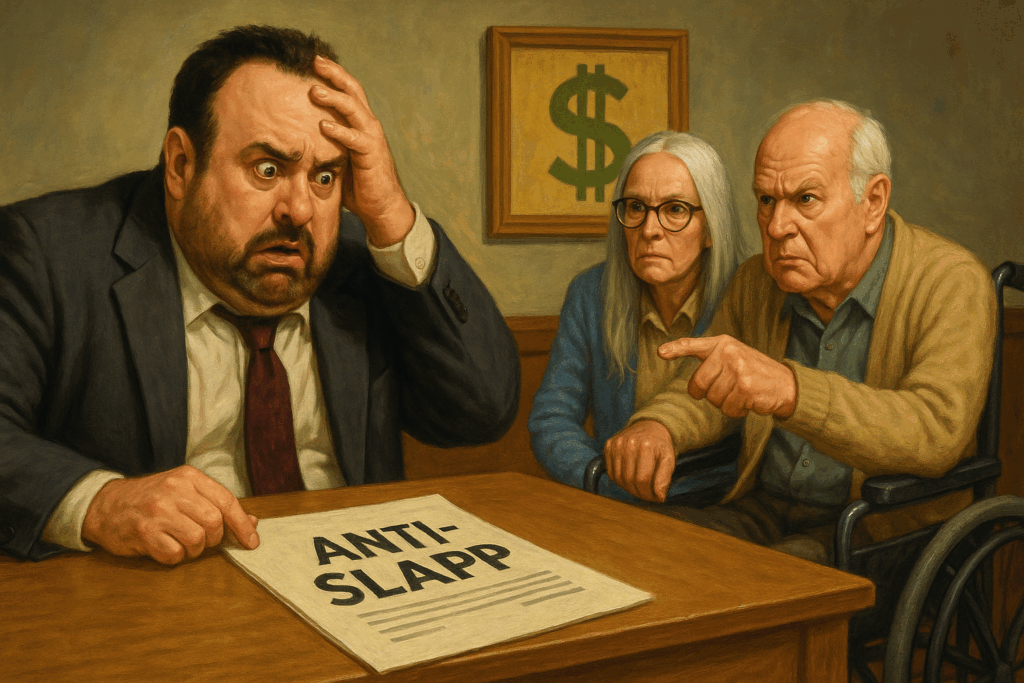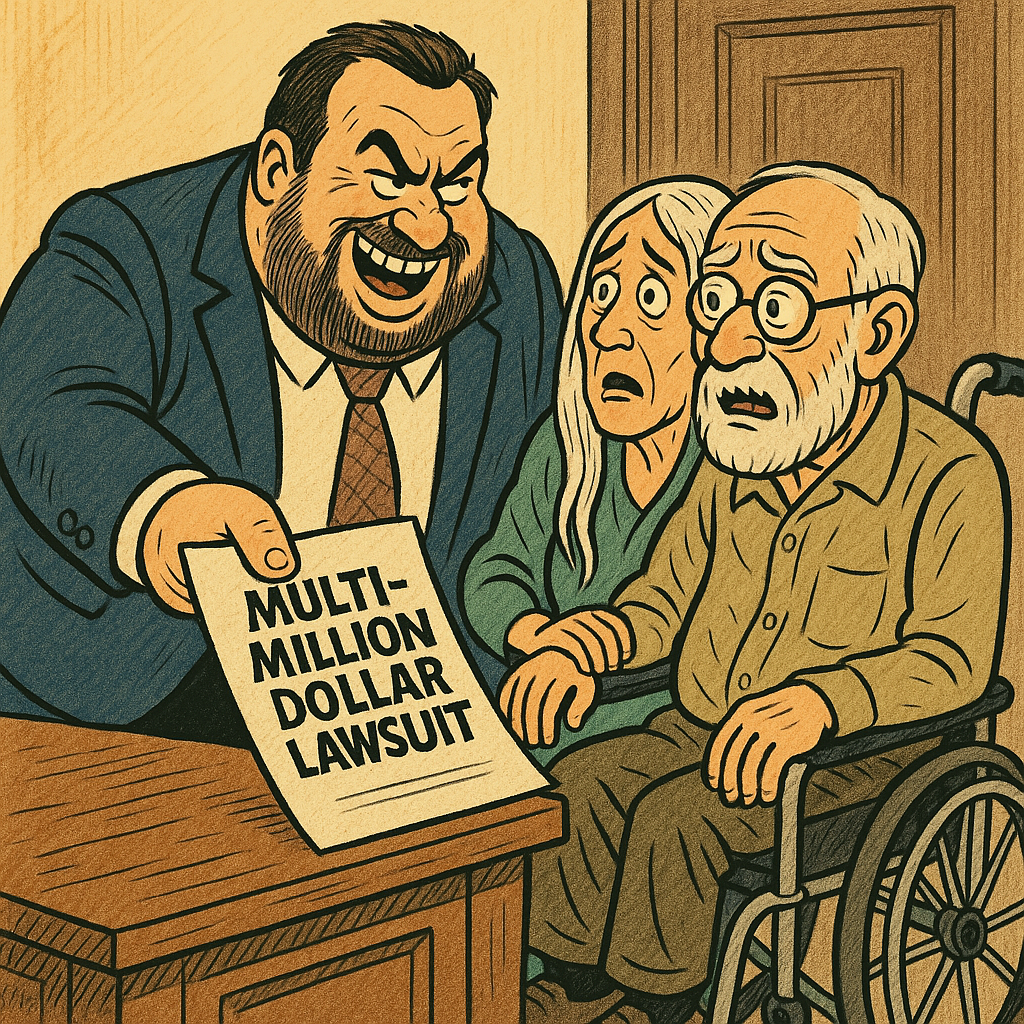This Site is owned and operated by GoodShepherdMedia.net and it’s corporate entity Good News Media LLC and is not for sale.
Please wait while you are redirected...or Click Here if you do not want to wait.YOUR IP ADDRESS IS: 144.208.71.49
This site will rediret you to the Clown Page Paul Toepel the Liar in 420 seconds that’s 7 minutes for the impaired. CLICK HERE IF YOU DONT WANT TO WAIT. we suggest everything here 1st
Isaiah 5:20 Woe to those who call evil good and good evil, who put darkness for light and light for darkness, who put bitter for sweet and sweet for bitter!
This low level douche bag Paul Toepel decided to sue the elderly in the later years for $30,000,000 ($30 MILLION) only to drop the case!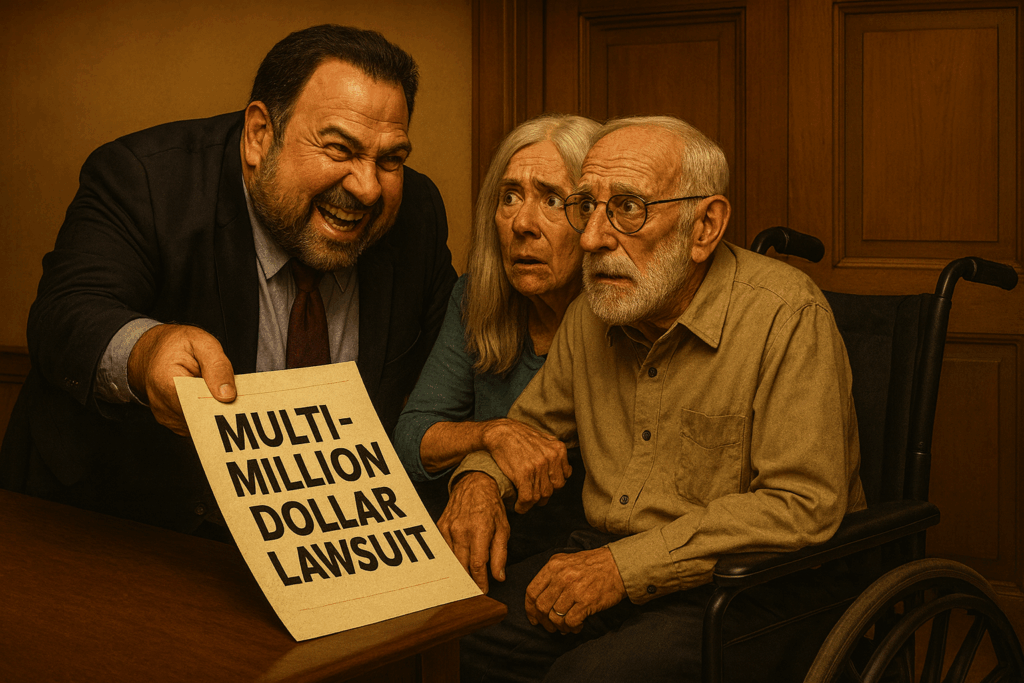
To FIND OUT WHERE THE PEACEFUL PROTEST WILL TAKE PLACE CLICK HERE
In Good Shepherd Media’s Eyes Paul Toepel is as Low and Scummy as they come, like cum! We would NEVER WANT HIM LIVING AROUND US or OUR FAMILY or have such a LOW BALL HUMAN as a FRIEND. In our personal opinion he should be told by others including his neighbors what they think of a man like this.
Mind you Paul Toepel, will SPIN IT, SPIN IT HE WILL, HIS WAY! and he will say HE DID NOTHING WRONG and ITS EVERYONE ELSE’s FAULT. Very Narcistic and sociopathic in our opinion but thats how charming manipulators work.
Public court filings show an attorney filed a $30,000,000 lawsuit that also named two elderly parents who were later dismissed. According to their counsel, defending those claims cost about $39,000. Scan to review the documents and decide for yourself. OPINION & PEACEFUL-ASSEMBLY NOTICE : This flyer expresses opinions based on disclosed facts and public records (see sources at the link). We support lawful, peaceful public assembly only—no trespassing, harassment, or disruption.
Paul Toepel has sued an 85 year old double stroke victim and a 78 year old stroke and aneurysm victim for $30,000,000 ($30 MILLION) only to drop the case costing these elderly well over $39,000 and pain of lossed time and stress. THIS HARDWORKING ELDERLY COUPLE was FORCED to WASTE over $39,000 to defend themselves against his WONDERFULLY CREATIVE ACCOUNTS OF HOW THINGS HAPPEN. ONLY TO REALIZE HE FUCKED UP AND DROPS THE CASE
Paul David Toepel, Jr., Esq. (CA Bar No. 292857)
Re: Cease Harassment of Third Parties; Direct Communications to Publisher; Clarification of Domain Ownership
Dear Mr. Toepel:
Please take notice that Good News Media LLC (“GNM”) has been informed that you have sued and/or threatened individuals over content that GNM published in 2021 concerning you. Those individuals are not the publisher, editor, or owner of the content at issue. We further understand your actions have caused substantial burden—including defense expenditures reported to exceed $39,000—to elderly, uninvolved third parties, and that you later dismissed claims when it became evident they lacked merit. If you contend otherwise, please provide documentation within ten (10) days.
To prevent further harm and to preserve everyone’s rights:
- Cease harassing or contacting non-publisher third parties about GNM’s content.
- Direct all complaints, claims, or legal correspondence regarding the 2021 content to GNM only not to private individuals.
- Withdraw and dismiss with prejudice any pending claims against non-publisher individuals relating to GNM’s content, and confirm in writing within ten (10) days.
- Preserve all evidence relevant to these matters, including communications with third parties, consistent with your obligations as an officer of the court.
- Cease asserting or implying “cybersquatting” with respect to PAULTOEPEL.COM. GNM owns PAULTOEPEL.COM for noncommercial, First-Amendment-protected commentary and criticism. We have never offered to sell, transfer, or monetize the domain and have no plans to do so. As you know, you maintain AttorneyPaul.com.
Legal Framework (for clarity, not argument on the merits)
- Protected Speech: The U.S. and California Constitutions protect noncommercial commentary on matters of public concern. Efforts to burden such speech via meritless litigation may be subject to California’s anti-SLAPP statute (CCP § 425.16), including mandatory fee-shifting.
- Domains Used for Criticism: Allegations of “cybersquatting” require, among other things, a bad-faith intent to profit (15 U.S.C. §1125(d)). Noncommercial criticism sites and gripe domains—used solely to comment on a public figure’s conduct—do not satisfy this standard and are protected uses.
- Professional Duties: As a California attorney, you remain bound by duties of candor and fairness toward the tribunal and non-parties. Directing litigation pressure at uninvolved elderly individuals over content they did not publish risks sanctions and fee exposure.
What We Expect
Within ten (10) calendar days of the date of this letter, please
(a) confirm in writing that you will direct all further communications regarding the 2021 Good News Media LLC content to GNM only;
(b) confirm that you have ceased contacting non-publisher third parties; and
(c) provide written confirmation of any dismissals/withdrawals already filed or to be filed.
Absent timely confirmation, GNM will consider all appropriate remedies, including fee recovery and sanctions where available if you choose to seek legal action against us.
We will get our message out to the public for peaceful public assembly as this is a matter of great public concern to parents who may be involved in family law or have a sex offender in their home against court orders or have elderly that may get sued by doing nothing, like you help your client Marcia commit. Our opinion is that this is a violation of California Penal Code 31 PC is the California statute that addresses aiding and abetting. This is defined as encouraging, facilitating or aiding in the commission of a criminal act.
Nothing herein waives any rights, claims, or defenses, all of which are expressly reserved.
If you actually have a substantive issue with GOOD NEWS MEDIA LLC (GNM’s 2021 publication), address it to us directly via our site, https://goodshepherdmedia.net/
We are the correct point of contact—not private individuals who had no role in our editorial decisions.
Sincerely,
Jeff
Senior Editor, Good News Media LLC
PS. You do remember what you did to that family and what you did help the mother conceal
https://goodshepherdmedia.net/
you as a father yourself should have known much better sir.
Good News Media LLC owns this domain and PaulToepel.com and it’s for 1st amendment posts related to acts of public concern. You are a dishonest man and that only you can change sir.
We here at Good News Media LLC believe peace starts with healing, we believe healing starts with your accountability of the harm you caused to a family;
All children need their fathers
We at Good News Media LLC believe if you sent out such a letter to your victims, the christians that we believe they are will forgive you and we may be asked to trash the post out of forgiveness and empathy to your pathetic lying self. But We are sure if there is never an apology from you, you deeds will live here on this site forever.
Best bet is to admit you lied in court against the father in a personal apology letter to all 4 of your victims:
Father
Grandparents
And the child
“HE PUT A GUN TO HIS SON’S HEAD” in court, we have a copy of the transcripts
on subsequent court dates the father confronts you about those lying words out of your lying mouth and on the transcript you deny saying this in court
you can’t have it both ways which makes you a liar, there.
we have a copy of where you expressesly stating that the father employs his mother and was arrested at your clients work, LA Kaiser Mental Health. which is a complete lie. You committed not only perjury but defamation to the father and his mother!
It is also our opinion that your behavior that is on record amounts to:
4.1 truthfulness IN STATEMENTS TO OTHERS
118 PC PERJURY
we are not sure that will be up to a judge one day sir!
http://paultoepel.com/https://goodshepherdmedia.net/
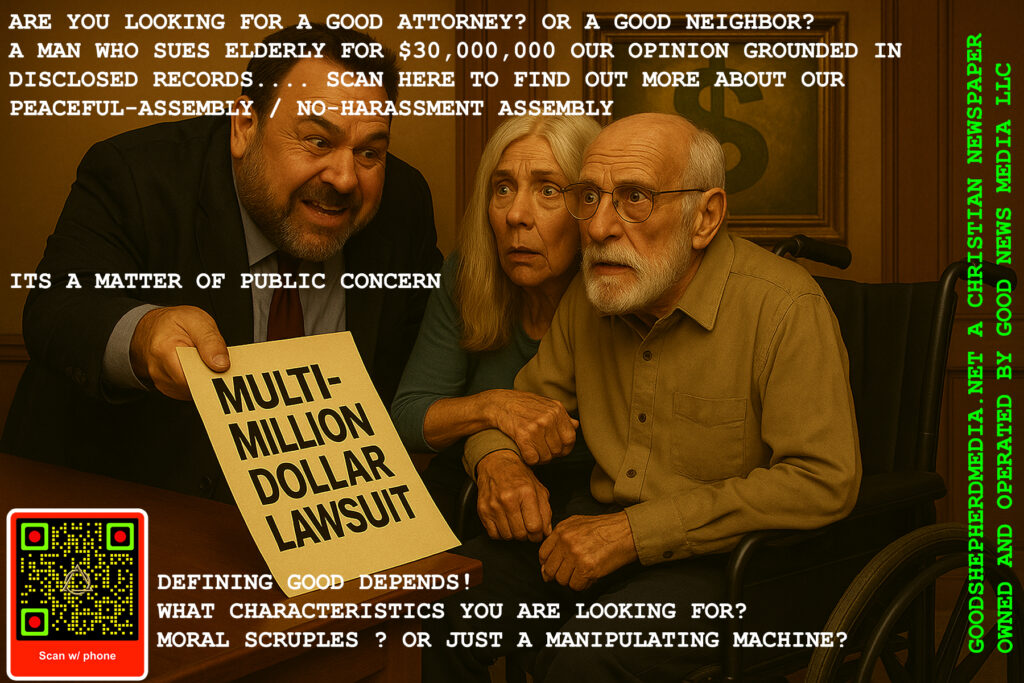
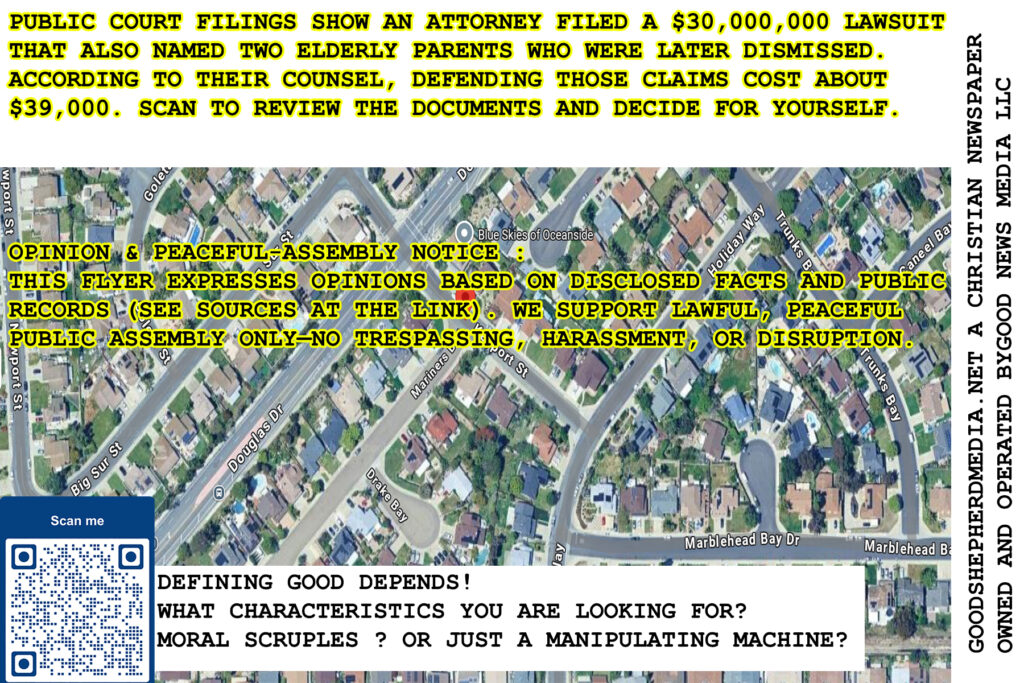
Paul Toepel Attorney Reviews
Senior Counsel in a Law Firm under 2 years of working there yet still has a poorly rated law firm he owns on the side called “Law Office of Paul D. Toepel Jr.” google it
this post is 1 year old and he was already senior counsel then, he had not worked there that long he was taken on board in our opinion 2024 where we can find the first public post, prior to 2024 we cannot find evidence to support any other theory.
for sure though they at EPGR lawyers gave this guy a crown while Paul himself has a poorly rated law firm is kinda weird, senior counsel is not for having grey hair, its for those that have worked for a firm for an extended period of time and have contributed greatly.
in our opinion the timeline is very short and his poorly rated law firm is a disaster in our opinion.


In most jurisdictions, it is highly unusual and ethically problematic for a lawyer to be a senior counsel at one law firm while simultaneously owning a separate, poorly-rated practice. This arrangement creates significant conflicts of interest, breaches of loyalty, and risks to both firms and clients.The following factors make this situation unusual:
- Fiduciary duty to the primary firm: As a senior counsel, a lawyer has a fiduciary duty to their main firm. Running a competing firm, especially one that could draw business away, creates a clear breach of loyalty. Many partnership agreements explicitly prohibit or restrict outside business activities, particularly in the legal field.
- Conflicts of interest: A lawyer is ethically required to run a conflicts check before taking on any new client to ensure there are no opposing interests. If the lawyer owns a separate firm, all clients from both firms must be screened against each other for conflicts. This can create an “imputed disqualification,” where a conflict in one firm disqualifies the other firm from taking on a new matter. The potential for conflicts and ethical violations increases exponentially.
- Malpractice and reputation risk: The primary law firm’s malpractice insurance often does not cover “side work,” even if it is pro bono. The existence of a poorly rated side practice poses a serious reputational risk to the reputable firm. If a client of the smaller firm were to sue for malpractice, the negative publicity could damage the reputation of the larger firm, and in certain circumstances, the large firm might even be held liable.
- Business and client development: Law firms expect their senior-level attorneys to contribute to the firm’s growth by attracting and retaining clients. Owning a competing side practice can raise questions about where the lawyer is directing new business. The lawyer’s professional reputation at the primary firm is also damaged if they are associated with a poorly rated side practice.
- Allocation of time and resources: The practice of law is demanding, and running two legal businesses simultaneously would be a major drain on time and resources. The primary firm would likely question whether the lawyer is fully committed and dedicating sufficient time to their duties.
- Lack of transparency: The lawyer may be operating the side firm without the knowledge or explicit consent of their main law firm. This is a significant breach of ethics and policy that could lead to disciplinary action, including disbarment or termination.
- Firm structure or relationship: In some rare cases, and typically with explicit disclosure and agreement, a “part-time” or “of counsel” attorney may have an ongoing relationship with a firm while still operating their own practice. The relationship would need to be formally documented, with clear rules for client intake and managing conflicts of interest.
- Business ownership without active practice: The lawyer may have inherited or retained ownership of a smaller firm but no longer practices there. In this scenario, they are an inactive owner who does not engage in legal work for that firm. This must still be fully disclosed to their main firm to address potential conflicts of interest.
So Paul Toepel Jr. I say to you, “The lord rebukes you!” what you have done to a family with blatant disregard for childs childhood and safety is not a healthy way to live for your soul, not fixing it is even worse! Shame on you Paul for being a liar and manipulator and still had set out to harm the Elederly granparents of this family man, you need moral help in our opinion and since we love you as a brother you should get help and fix the wrongs you have done.
Its our opinion that they fall into these categories and something should be done legally. Moral turpitude refers to conduct considered base, vile, or depraved, violating accepted social or community standards of morality. In the legal context, a crime of moral turpitude involves an act of willfulness and a guilty mind that is inherently wrong and morally reprehensible. and you being a lawyer this is concerning. lying we believe would fall under Perjury (Penal Code § 118) and be an act of 8.4 misconduct we believe it falls in definition for moral turpitude
In California, Business and Professions Code (BPC) § 6106 addresses acts of moral turpitude committed by attorneys. The term “moral turpitude” is not explicitly defined in the law but is generally understood as conduct that is contrary to justice, honesty, and good morals.
- Committed while the person was acting as an attorney.
- Classified as a felony or a misdemeanor in a criminal proceeding.
- Convicted in a criminal court.
REMEMBER THE PEOPLE WE CIRCLE OURSELVES WITH WILL INFLUENCE US AND OUR CHILDREN! WE ARE PARENTS AND WE CHOOSE TO TAKE NOTICE OF WHO IS IN OUR NEIGHBORHOODS, WHO OUR CHILDREN INTERACT WITH AND EVEN THE PARENTS OF THE CHILDREN THEY INTERACT WITH, POOP RUNS DOWN HILL. SO IF PARENTS HAVE GOOD MORALS THEIR CHILDREN WILL AND YOUR CHILDREN WONT BE INFLUENCED IMPROPERLY
HERE ARE SOME BIBILICAL SCRIPTURE TO REMIND ALL OF US
- (1 Corinthians 15:33) “Do not be misled: ‘Bad company corrupts good character'”
- (Proverbs 13:20) “Walk with the wise and become wise, but a companion of fools suffers harm”
- (Proverbs 12:26) “The righteous choose their friends carefully, but the way of the wicked leads them astray”
- (Proverbs 22:6) “Train up a child in the way he should go; even when he is old he will not depart from it”
- (Matthew 27:25) His blood is on us and on our children!” “His blood is on us and on our children!”
Teach and exemplify God’s commands. Deuteronomy 6:6-7 commands parents to be constant examples and teachers of God’s ways to their children: “These commandments that I give you today are to be on your hearts. Impress them on your children. Talk about them when you sit at home and when you walk along the road, when you lie down and when you get up”.
and also rooted in science as well
it’s a well-supported psychological concept that the people we surround ourselves with significantly influence our energy, habits, beliefs, and overall well-being. This influence can be either positive, by providing support and inspiration, or negative, by spreading negativity and toxic mindsets, ultimately shaping our personal growth, success, and even our mental and physical health.
-
Mindset: Your mindset is heavily influenced by your social environment. Positive, supportive individuals can foster a resilient, hopeful outlook, while a circle of complaining or negative people can spread a toxic mindset.
-
Growth and Potential: A healthy social support system provides encouragement, challenges your boundaries, and helps you see possibilities for growth and success. Conversely, negative or discouraging people can hold you back and hinder your potential.
-
Stress and Well-being:A supportive network is crucial for maintaining positive mental health, reducing stress, and fostering a sense of hope and energy when facing challenges.
-
Selectivity is Key: Since people are “contagious,” it’s vital to be selective about who you spend your time and energy on. Choose people who align with your goals, values, and desired personal growth.
-
Observe Your Environment: Pay attention to the conversations and mindsets present in your current social circles. Are they productive and positive, or do they focus on blame and negativity?
-
Build a Supportive Tribe: Intentionally seek out and cultivate relationships with positive, healthy, and supportive individuals who offer truth and encouragement.
- The Power of Peers Who Influences Your Health? newsinhealth.nih.gov
- Who Are You Surrounding Yourself With? psychologytoday.com
- Understanding the Circles of Control, Influence & Concern positivepsychology.com
- Does Your Social Circle Affect Your Habit Building? thefabulous.co
- Surrounding Yourself With The Right People Changes Everything forbes.com
Matthew 7:12 “So whatever you wish that others would do to you, do also to them, for this is the Law and the Prophets.
Federal Cybersquatting Law
Federal law – the Anticybersquatting Consumer Protection Act (ACPA), 15 U.S.C. §1125(d) – creates a cause of action for registering or using a domain name confusingly similar to a mark with bad-faith intent to profit.
The Act explicitly exempts noncommercial or fair use and free-speech uses. As one treatise notes, “the Act does not prohibit a registrant’s fair use of a domain name, or any uses protected by the First Amendment” justia.com.
In the present case, the owner’s sworn facts (no sale offer, only “First Amendment purposes”) undercut any finding of bad faith.
REMEMBER ANTI-SLAPP IS REAL, MALICIOUS PROSECUTION IS REAL, MERITLESS CLAIMS IS REAL! THESE BEHAVIORS CONSTITUTE 8.4 MISCONDUCT.
DON’T USE YOUR EDUCATION TO MALICOUSLY HARM THE ELDERLY, IT COST THEM $39,000 TO DEFEND AGAINST YOU MALICOUS PROSECUTION
YOU DROPPED THE CASE AFTER FAILING TO SPEAK TO THE ELDERLY BEHIND THEIR ATTORNEY’S BACK (PRETTY SNEAKY)
THEN YOU REALIZED YOU WILL BE LIABLE FOR ATTORNEY FEES AND IMMEDIATELY DROPPED THE MERITLESS CHARGES AGAINST THE ELDERLY STILL COSTING THEM $39,000 OF THEIR RETIREMENT SAVINGS
VIDEO OF YOU SNEAK CALL BEHIND THE ATTORNEY OF RECORDS’ BACK!
LOSING YOUR LAW LICENSE FOR REPEATED ABUSE IN THESE AREAS IS SOMETHING THAT CAN HAPPEN TO ANY ATTORNEY, SO CAN COUNTER SUITS AND INJUCTIONS!
EDUCATION IS NOT FOR ABUSING OTHERS! SIR!
EDUCATION IS TO UPLIFT YOURSELF AND OTHERS AROUND YOU. TO AID TO HELP TO MEND TO HEAL TO LEAD. YOU LACK QUALITIES AS SUCH
- Moral principles: These are deeply held values that create a sense of right and wrong, influencing actions based on a desire to do the right thing.
- Empathy and compassion: A moral agent considers the feelings and well-being of others. This leads to acts of kindness and a reluctance to cause harm.
- Accountability: Moral actors take responsibility for their actions and mistakes. This is a key part of developing a strong moral compass.
- Moral dilemma: A moral agent experiences internal conflict, or “scruples,” when faced with a choice that pits their principles against a desirable outcome.
- Amoral reasoning: This agent lacks an inherent sense of right or wrong. Its decision-making is based on what is most effective for achieving a specific, pre-determined outcome.
- Strategic actions: All actions are viewed as instruments for manipulation, whether it’s through deception, coercion, or leveraging others’ emotions. For this agent, even appearing moral can be a tactic.
- Lack of empathy: This agent does not consider others’ feelings unless doing so is part of its strategy. It is not guided by a sense of guilt or compassion.
- The “good” outcome: In this framework, a “good” outcome is simply one that satisfies the manipulator’s objective, regardless of any harm caused along the way.
Definition of Troublemaker
A troublemaker is someone who deliberately causes problems or difficulties for others dictionary.com. In this context it refers to an unscrupulous individual (for example, a lawyer) who knowingly lies, deceives, or manipulates people for personal gain. Such a person might file baseless lawsuits to harass innocent parties (like suing elderly people to pressure their family), then drop the case once their goal is met – leaving the victims with needless stress and expense. In short, this “troublemaker” is a dishonest, coldhearted instigator who stirs up conflict and distress through deception and malicedictionary.com.
These are some California Bar and Penal Codes that are on the books
California law strictly prohibits this kind of behavior by lawyers. For example:
- B&P Code §6068(d) – Requires attorneys to use “only [means] consistent with truth” and forbids them to “seek to mislead the judge or any judicial officer by an artifice or false statement of fact or law.” codes.findlaw.com.
- B&P Code §6068(g) – Prohibits lawyers from initiating or continuing any legal action “from any corrupt motive of passion or interest.” codes.findlaw.com.
- B&P Code §6106 – States that “[t]he commission of any act involving moral turpitude, dishonesty or corruption” (whether felony or misdemeanor) is grounds for an attorney’s suspension or disbarment law.justia.com.
- B&P Code §6101 – Provides that a conviction of a felony or misdemeanor involving moral turpitude “constitutes a cause for disbarment or suspension.” codes.findlaw.com.
- Penal Code §118 – Defines perjury (knowingly making false statements under oath) as a felony. In other words, lying under oath is a crime calbar.ca.gov.
Together, these rules make clear that lawyers must act honestly and not abuse the legal system. Any attorney who lies, manipulates, or pursues lawsuits for corrupt motives violates these ethical duties and faces severe discipline (up to disbarment) and possibly criminal penalties codes.findlaw.comlaw.justia.comcodes.findlaw.comcalbar.ca.gov.
Sources: California Business & Professions Code §§6068(d),(g), 6106, 6101 codes.findlaw.comcodes.findlaw.comlaw.justia.comcodes.findlaw.com; California Penal Code §118 calbar.ca.gov; Dictionary definition of “troublemaker” dictionary.com.
COME CHECK OUT A BOOK WITH GOOD MORALS SOLD ON AMAZON.COM THAT YOU CAN USE TO TEACH YOUR KIDS! CLICK BELOW TO ADD THIS BOOK TO YOU KINDLE SUBSCRIPTION FOR FREE! YOU HAVE TO SUBSCRIBE TO KINDLE TO GET IT FREE, AMAZON IS A NICE COMPANY! THANKS AMAZON! FOR PUSHING GOOD WHOLESOME BOOKS WITH AWESOME MESSAGES FOR OUR CHRISTIAN CHILDREN
CLICK BOOK BELOW TO BE TAKEN TO AMAZON
Constitutional Protection for Leafleting and Peaceful Assembly
U.S. and California courts have long held that distributing flyers and organizing peaceful protests on matters of public concern are core First Amendment activities. For example, the U.S. Supreme Court has emphasized that “peaceful picketing and leafletting are expressive activities involving ‘speech’ protected by the First Amendment” in traditional public forums such as streets and sidewalks supreme.justia.com. Similarly, in Lovell v. City of Griffin, the Court struck down any permit requirement for pamphlet distribution, noting that “the First Amendment… ‘necessarily embraces pamphlets and leaflets,’ which ‘have been historic weapons in the defense of liberty’” law.justia.com. And in Talley v. California the Court invalidated a ban on anonymous handbills, observing that “anonymous pamphlets, leaflets, brochures and even books have played an important role in the progress of mankind…allowing criticism of oppressive practices and laws either anonymously or not at all” constitution.congress.gov. In short, peaceful leafletting about public issues is highly protected speech supreme.justia.comlaw.justia.com.
California Law (First District and State Court)
California courts likewise extend broad protection to political leafletting and petitioning. Under Article I, Section 2 of the California Constitution, even privately‑owned spaces open to the public (like shopping centers or plazas) can be treated as “public forums” for free speech. In Robins v. Pruneyard Shopping Center (Cal. 1979), the California Supreme Court held that distributing petitions and soliciting signatures at a mall – activities analogous to leaflet distribution – is constitutionally protected speech. The court expressly “h[e]ld that…soliciting at a shopping center of signatures for a petition to the government is an activity protected by the California Constitution” law.justia.com. California courts have cited Pruneyard to underscore that visitors to generally‑accessible private property can engage in political speech if it is peaceful and not disruptive of the owner’s business.
Likewise, the California courts recognize a heavy presumption against any injunction limiting peaceful leafleting or protest. In Paradise Hills Associates v. Procel (Cal. Ct. App. 1991), neighbors had distributed leaflets accusing a homebuilder of “panic peddling” and posted large signs on model homes. The court quoted the U.S. Supreme Court’s decision in Organization for a Better Austin v. Keefe (1971), which involved peaceful pamphleteering about a broker’s practices. The court noted:
“The Court has often recognized that the activity of peaceful pamphleteering is a form of communication protected by the First Amendment…[T]hose practices were offensive to them…But so long as the means are peaceful, the communication need not meet standards of acceptability.”
Organization for a Better Austin, 402 U.S. at 419, quoted in Paradise Hills law.justia.com.
The Paradise Hills court further stressed that any prior restraint on such expression “comes to [the Court] with a ‘heavy presumption’ against its constitutional validity,” and no authority “support[s] the claim that the interest of an individual in being free from public criticism” justifies an injunction law.justia.com. In other words, California case law squarely protects non‑threatening leaflets aimed at informing neighbors about alleged wrongdoing.
For additional context, California legal guides note that even door‑to‑door leafleting in residential areas is generally allowed without special permits. For example, an ACLU handbook explains that “[n]o permits or advance notice can constitutionally be required for…leafleting on public sidewalks, or even door‑to‑door” aclunc.org. Thus, under California law – and especially for purely informational, peaceful protest leaflets – the freedom of speech and assembly strongly shields the activity.
U.S. Supreme Court Cases
At the federal level, the Supreme Court has repeatedly affirmed these principles:
-
Leaflets and Pamphlets. As noted, Lovell v. Griffin (1938) and Schneider v. Irvington (1939) struck down broad bans on leaflet distribution, holding that simple handbilling in public is a fundamental right. These cases affirm that leaflets are protected “weapons in the defense of liberty” law.justia.com. Talley v. California (1960) extended this protection by invalidating an ordinance requiring the author’s identity on every handbill, precisely because anonymity in leafleting can be essential constitution.congress.gov.
-
Peaceful Picketing and Public Forums. In United States v. Grace (1983), the Court struck down a total ban on expressive activity on the Supreme Court grounds, emphasizing that “as a general matter, peaceful picketing and leafletting are…speech protected by the First Amendment” in public spaces supreme.justia.com. The Court treated sidewalks and streets as “traditional public forums” where absolute bans on speech (like handbilling) would require a compelling government interest supreme.justia.com.
-
Matters of Public Concern. Critically, speech on issues of public interest is given the highest protection. Snyder v. Phelps (2011) reaffirmed that “speech concerning public affairs is more than self‑expression; it is the essence of self‑government,” and that “speech on public issues occupies the highest rung of the hierarchy of First Amendment values”supreme.justia.com. In Snyder, even deeply offensive picketing at a military funeral was upheld because it addressed broad public debates. By analogy, criticizing an attorney’s alleged court misconduct – a matter touching public trust in the legal system – is likely viewed as speech on a matter of public concern. As Snyder makes clear, such speech warrants the strongest protection supreme.justia.com.
-
Anti-Doxxing and Anonymity. The state cannot simply prohibit naming names when leafleting. In Watchtower Bible & Tract Society v. Village of Stratton (2002), the Court struck down a municipal ordinance that required door‑to‑door advocates to register and obtain a permit before handing out literature constitution.congress.gov. The Court noted a “respected tradition of anonymity in the advocacy of political causes,” and held that requiring advance permission would unduly chill speech constitution.congress.govconstitution.congress.gov. Thus, even if your flyers include the attorney’s identity and address, doing so in a truthful, non‑threatening way should be constitutionally protected speech (subject to anti‑harassment laws if threats or trespass are involved, but none are alleged here).
-
No Prior Restraints. In Organization for a Better Austin v. Keefe (1971), the Supreme Court refused to enforce an injunction against distributing leaflets in a residential neighborhood. There, citizens hand‑delivered flyers exposing a realtor’s practices. The Court declared that peaceful pamphleteering “is not fundamentally different from the function of a newspaper,” and stressed that any prior restraint on such information “comes…with a ‘heavy presumption’ against its constitutional validity” law.justia.comlaw.justia.com. If leafletting a local broker was protected speech, the same logic applies to peacefully informing neighbors about a public‑interest complaint against an attorney.
In sum, both California and federal law provide robust protection for distributing flyers and gathering for peaceful protest on public concerns. The cases above strongly suggest that handing out informational leaflets to neighborhood residents – even naming an attorney and directing people to a home address for a silent assembly – would be constitutionally protected so long as the speech is non‑violent and non‑threatening. In fact, courts have consistently rejected injunctions against peaceful leaflet campaigns about business or legal controversies law.justia.comlaw.justia.com. Any attempt to restrain such speech would bear a “heavy burden” and would likely be struck down as an unconstitutional prior restraint law.justia.comlaw.justia.com.
Sources: U.S. Supreme Court and California appellate opinions on free speech, picketing, and leafletting supreme.justia.comlaw.justia.comconstitution.congress.govlaw.justia.comlaw.justia.com, as well as constitutional commentary. These authorities make clear that peaceful, informational leafleting for assembly on a matter of public concern is protected speech supreme.justia.comsupreme.justia.com.
Protected activity.
Leafleting/pamphleteering and online publication on public policy are protected under §425.16(e)(3)–(4). The flyer advocates about not haveing “manipulative type beahvior” and bringing meritless claims against elderly to attack their sons free speech; the elderly never said a word — classic public-concern speech. (Briggs; FilmOn; Cross v. Facebook.)
Harassment statutes exclude constitutionally protected activity (CCP §527.6(b)(1); PC §646.9(k)). (Snyder; Evans; Balboa Island re prior restraints.)
Anti-SLAPP Fee-Shifting (Cal. Civ. Proc. Code §425.16(c)(1))
Under California law, any defendant prevailing on an anti‑SLAPP motion is entitled to attorneys’ fees and costs scocal.stanford.edu. In Ketchum v. Moses (2001) 24 Cal.4th 1122, the California Supreme Court reaffirmed that §425.16(c) “mandates” an award of fees to a winning SLAPP defendant, to “discourage . . . strategic lawsuits against public participation” scocal.stanford.edu. Federal courts applying California law agree: a “prevailing defendant on a special motion to strike” must recover fees and costs law.justia.com. Notably, a defendant need not actually win on the merits – even a voluntary dismissal by the plaintiff suffices. For example, the Ninth Circuit held that if a plaintiff abandons a SLAPP lawsuit while an anti‑SLAPP motion is pending, the defendant still “prevail[s]” and can recover fees law.justia.com. Thus, if the parents were sued in a SLAPP‑type case (e.g. as proxies for speech-related conduct), they could move to strike the complaint under §425.16 and demand fees. The statute’s fee‑shifting is mandatory and applies even if the motion is never ruled on, as long as the suit is dismissed law.justia.comscocal.stanford.edu.
Malicious Prosecution (“SLAPPback”)
Alternatively, the parents can sue the attorney for malicious prosecution (sometimes called a “SLAPPback” suit). California law requires three elements:
(1) the prior suit terminated in favor of the current plaintiff (here, the parents);
(2) the prior suit was filed without probable cause; and
(3) it was brought with malice law.justia.com. In this case, the attorney voluntarily dismissed his claims against the parents when he realized he had “no case” and faced fee liability.
A voluntary dismissal is generally treated as a legally valid termination in favor of the former defendants law.justia.com. In MacDonald v. Joslyn, the court held that even a dismissal “without prejudice” is a “favorable termination which will support an action for malicious prosecution” law.justia.com. The Ninth Circuit recently reiterated that a malicious-prosecution plaintiff must plead that the original case “was pursued to a legal termination in [their] favor” law.justia.com. Thus, the parents meet element (1) under MacDonald and Crowley v. Katleman, because the prior case ended with the attorney dropping it.
The second element—lack of probable cause—is likewise indicated by the facts. The attorney admitted he “had no case to proceed” and dismissed precisely to avoid losing and paying fees law.justia.com. That confession suggests no reasonable grounds existed. Malice (element 3) may be inferred if the suit was “not justified by probable cause” law.justia.com. The parents were sued only as relatives who “did nothing” wrong; targeting them suggests an improper purpose (e.g. harassment or retaliation). Notably, California law views lack of probable cause as evidence of malice law.justia.com.
-
Key Malicious‑Prosecution Elements: (1) Favorable termination of the prior action law.justia.com (here, a voluntary dismissal counts law.justia.com), (2) lack of probable cause law.justia.com, and (3) malice law.justia.com.
The parents can recover damages and costs from the attorney. California has long held that when a maliciously prosecuted defendant’s losses exceed ordinary court costs, he may sue for “all the damages” caused law.justia.com. In Eastin v. Bank of Stockton, the Court explained that if a malicious prosecution imposes expenses beyond standard costs, the victim has “a remedy by action on the case” law.justia.com. Here, the $39,000 attorneys’ fees and other costs incurred defending the suit would be recoverable damages. In addition, because §425.16(c)(1) was triggered by the dismissal of the SLAPP‐type claims, the parents (as prevailing “defendants”) could themselves move for an award of their defense fees as costs law.justia.comscocal.stanford.edu. (Under CCP §425.16(c), the fee award goes to the defendant in the SLAPP, which here would be the parents.)
Supporting Authority
– Ketchum v. Moses (Cal. 2001) 24 Cal.4th 1122: “[A]ny SLAPP defendant who brings a successful motion to strike is entitled to mandatory attorney fees” under §425.16(c) scocal.stanford.edu. This case stresses that fee‑shifting is intended to deter meritless, chilling litigation.
– Law Offs. of Bruce Altschuld v. Wilson (9th Cir. 2015): “Under [§425.16(c)(1)], ‘a prevailing defendant on a special motion to strike’ is entitled to recover attorneys’ fees and costs” law.justia.com. It held that a defendant may prevail even if the plaintiff dismisses first. It also restates the three malicious-prosecution elements law.justia.com and confirms Crowley’s “entire action” requirement law.justia.com.
– Crowley v. Katleman (Cal. 1994) 8 Cal.4th 666: Sets out malicious prosecution law in California, requiring (1) favorable termination of the entire prior action, (2) lack of probable cause, and (3) malice law.justia.comlaw.justia.com. The Court explained that termination on the merits is not required; a voluntary end suffices so long as it’s not on “technical grounds” inconsistent with innocence scocal.stanford.edulaw.justia.com.
– MacDonald v. Joslyn (Cal. App. 1967) 275 Cal.App.2d 282: Held that a plaintiff’s voluntary dismissal (even without prejudice) is a “favorable termination” supporting malicious prosecution law.justia.com.
– Eastin v. Bank of Stockton (Cal. 1884) 66 Cal. 123: Established that when a malicious prosecution inflicts damages beyond ordinary costs, the defendant is entitled to sue for the excess (all attorneys’ fees and other damages) law.justia.com. This principle underlies the remedy here.
In summary, California law clearly authorizes awarding fees and damages to the innocent defendants in this scenario. The parents could invoke §425.16(c)(1) to recover their fees as prevailing defendants scocal.stanford.edulaw.justia.com, and they may pursue a malicious prosecution claim to recover the full $39K spent (and more) since their dismissal was “favorable” and without probable cause law.justia.comlaw.justia.com. These holdings from the California Supreme Court (and echoed by federal courts) leave little doubt that citing Ketchum and related cases is appropriate and well-founded.
Sources: California Supreme Court decisions (Ketchum, Crowley); California Court of Appeal (MacDonald); Ninth Circuit (Altschuld v. Wilson) scocal.stanford.edulaw.justia.comlaw.justia.com (all discussing §425.16(c) and malicious prosecution elements).
California Anti-SLAPP Statute (§425.16) and Fee Awards
California Code of Civil Procedure §425.16(c) mandates fee-shifting for SLAPP suits. By its terms, a defendant who prevails on an anti-SLAPP motion “shall” recover “reasonable attorney’s fees” and costs law.justia.com.
Courts have stressed that a plaintiff cannot evade this penalty simply by voluntarily dismissing the case. In Liu v. Moore (1999), for example, the court held that a SLAPP defendant who filed a section 425.16 motion must still have that motion heard, even if the plaintiff dismisses the complaint first. The Fourth District explained that dismissing the case does not allow the plaintiff to avoid paying fees: “a defendant who is voluntarily dismissed… after filing a §425.16 motion to strike is nevertheless entitled to have the merits of such motion heard…as a predicate to a determination of the defendant’s motion for attorney’s fees and costs” law.justia.com. In other words, once the defendant moves to strike under the anti-SLAPP law, the court must resolve that motion (and then award fees) regardless of the voluntary dismissal.
-
Liu v. Moore (CA 4th App. 1999) law.justia.com – Plaintiff dismissed a cross-complaint before the anti-SLAPP hearing. The court reversed a denial of fees and ordered the hearing: “a defendant… dismissed… after filing a §425.16 motion… is nevertheless entitled to have the merits… heard… and to attorney’s fees and costs” law.justia.com.
-
Coltrain v. Shewalter (CA 4th App. 1998) law.justia.com – Plaintiff dropped its complaint in the face of a special motion to strike. The court nonetheless found the defendants were the “prevailing parties” under §425.16 and upheld an award of fees. It held that dismissing the SLAPP suit (even without a hearing) did not prevent the defendants from prevailing for fee purposes law.justia.com.
-
Ross v. Seyfarth (CA 4th App. 2023) – The court emphasized that once a SLAPP defendant is deemed the prevailing party, an award of fees is mandatory. In a partially-adjudicated case, it noted a discretionary determination may be required to fix the amount, but that fees must be awarded once prevailing status is established. (See Ross, 96 Cal.App.5th 722 (2023) (distinguishing Coltrain vs. Liu approaches) ocbar.orgocbar.org.)
These cases make clear that a plaintiff’s dismissal does not relieve him of fee liability under the Anti-SLAPP Act if the lawsuit was meritless. In practical terms, if the elderly defendants had moved to strike under §425.16, they would be presumptively entitled to fees once they prevailed. Even without a formal motion, courts will treat an unjustified dismissal against innocent defendants as a victory for the defendants. As one appellate court phrased it, if a SLAPP defendant “gets the plaintiff to go away with its tail between its legs,” the defendant ordinarily “will be the prevailing party” and thus entitled to fees law.justia.comlaw.justia.com. In sum, California law expressly provides that SLAPP defendants who succeed (even by dismissal) recover their attorneys’ fees as of right law.justia.comlaw.justia.com.
Malicious Prosecution and Fee Recovery
Another avenue is the tort of malicious prosecution. If a plaintiff’s case is brought “without probable cause” and “maliciously,” and it terminates in favor of the defendant, the defendant may sue the plaintiff (and attorney) separately for damages law.justia.comscocal.stanford.edu. A key element is a “favorable termination” of the underlying proceeding. Under Jaffe v. Stone (1941), a termination is favorable if it indicates the defendant’s innocence, plaintiff dismissing them is just that.
In a criminal context, for example, dismissal for lack of evidence at a preliminary hearing was held a favorable termination because it shows no case against the accused scocal.stanford.edu. By analogy, a civil case voluntarily dropped when confronted with proof of no liability would likely qualify. Once the defendants establish the prerequisites (favorable termination, lack of probable cause, and malice), California law permits them to recover all consequential damages. Critically, Bertero v. National General Corp. (1974) – a decision of the California Supreme Court – specifically recognized that such damages include the cost of defending the prior suit, “including reasonable attorney’s fees” law.justia.com. In Bertero, the court explained that settled law allows a malicious-prosecution plaintiff to recover attorney fees and court costs spent on the baseless suit, as well as reputational and emotional harm law.justia.com. Thus, if the elderly defendants can show the original claims were baseless and dismissed favorably, a malicious-prosecution judgment would obligate the plaintiff to reimburse their $39,000 in legal fees (along with any other proved losses) law.justia.comscocal.stanford.edu.
Other Fee-Shifting Authorities
Beyond these, California courts have recognized few other fee-shifting mechanisms. For example, Code Civ. Proc. §128.5 sanctions truly frivolous pleadings (after a safe-harbor notice) with attorney fee awards. And certain statutes (e.g. in defamation or constitutional cases) contain fee provisions. But absent such statutes, California follows the American Rule. (In federal court, the analogous principle is confirmed by Alyeska supreme.justia.com, and fees can only be shifted under rules like Fed. R. Civ. P. 11 or 28 U.S.C. §1927 upon a finding of bad faith or frivolous multiplication of proceedings.) None of these general rules, however, override the Anti-SLAPP statute or the malicious prosecution remedy.
Conclusion: California law provides clear support for shifting fees to a meritless plaintiff. An anti-SLAPP motion (if made or deemed made) entitles a prevailing defendant to fees law.justia.comlaw.justia.com, and dismissal of a baseless suit does not defeat that entitlement law.justia.comlaw.justia.com. Alternatively, a subsequent malicious-prosecution claim allows recovery of fees as part of damages law.justia.com. Together, these authorities furnish definitive legal grounds for holding the plaintiff responsible for the $39,000 in defense fees paid by the innocent elderly defendants.
Public court filings show an attorney filed a $30,000,000 lawsuit that also named two elderly parents who were later dismissed. According to their counsel, defending those claims cost about $39,000.
Scan to review the documents and decide for yourself.
OPINION & PEACEFUL-ASSEMBLY NOTICE:
This flyer expresses opinions based on disclosed facts and public records (see sources at the link). We support lawful, peaceful public assembly only—no trespassing, harassment, or disruption.
Best bet is to admit you lied in court against the father in a personal apology letter to all 4 of your victims!
Father
Grandparents
And the child
THIS EX FAMILY LAW JUDGE HANDLED A CIVIL CASE THAT HAS HANDLED FAMILY LAW CASES AGAINST THE FAMILY WAS MIRACOUSLY CALLED TO JUDGE A CIVIL CASE FROM A FAMILY LAW ATTORNEY PAUL TOEPEL



But even the archangel Michael, when he was disputing with the devil about the body of Moses, did not himself dare to condemn him for slander but said, “The Lord rebuke you!”
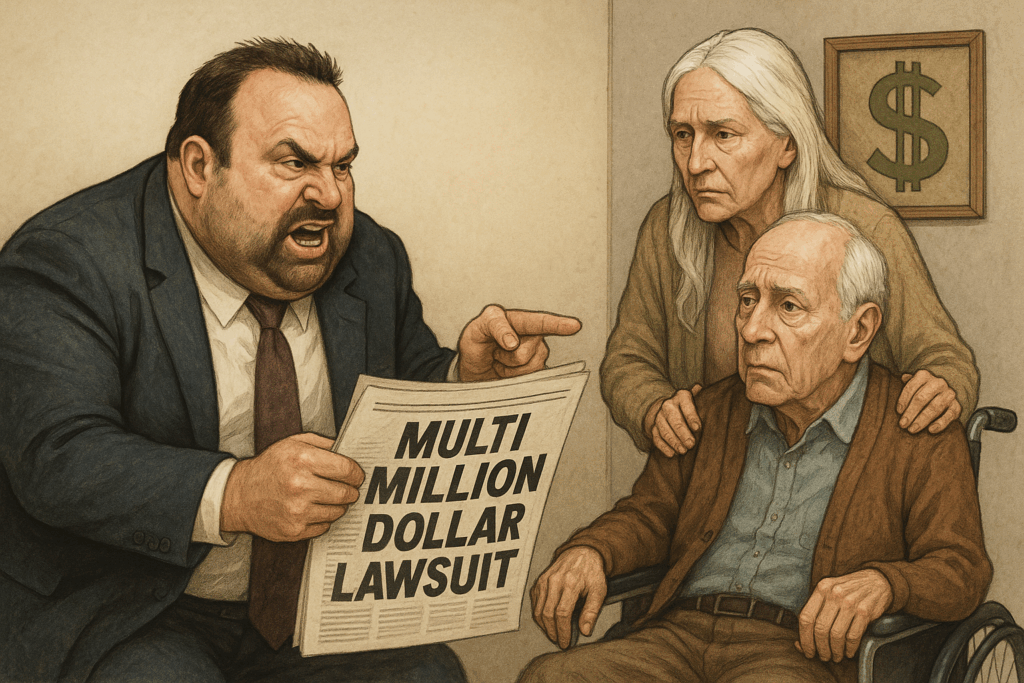
This guy in the video below reminds us of someone special
he are more heart warming verses to enlighten anyone
- Matthew 18:6 “But whoever causes one of these little ones who believe in me to sin, it would be better for him to have a great millstone fastened around his neck and to be drowned in the depth of the sea.”
- Mark 9:42 “Whoever causes one of these little ones who believe in me to sin, it would be better for him if a great millstone were hung around his neck and he were thrown into the sea.
- Luke 17:2 “It would be better for him if a millstone were hung around his neck and he were cast into the sea than that he should cause one of these little ones to sin.”
- Matthew 25:40 And the King will answer them, ‘Truly, I say to you, as you did it to one of the least of these my brothers, you did it to me.’
- Psalm 127:3-5 Behold, children are a heritage from the Lord, the fruit of the womb a reward. Like arrows in the hand of a warrior are the children of one’s youth. Blessed is the man who fills his quiver with them! He shall not be put to shame when he speaks with his enemies in the gate.
- Proverbs 31:8–9emphasizes speaking up for the voiceless and defending the rights of the poor.
- Isaiah 5:20warns against distorting truth by calling evil good and good evil.
- Psalm 101:3 expresses a refusal to tolerate evil.
- Luke 10:18 in the Bible states, “And he said to them, ‘I saw Satan fall like lightning from heaven.”
- Proverbs 24:11–12urges the rescue of those in peril, warning that ignorance is no excuse before God.
- Psalm 82:3–4calls for the defense of the weak, fatherless, poor, and oppressed.
- Isaiah 1:17instructs believers to seek justice and defend the oppressed.
- 1 Corinthians 5:6–7uses the analogy of leaven to show how allowing sin can negatively impact the whole community. This is in the context of the deciple Paul (not this Paul Toepel) addressing the Corinthians’ tolerance of unrepentant sin.
- Romans 1:32 condemns not only those who commit sin but also those who approve of such actions.
- The story of Eli in 1 Samuel 3:13shows how God judged him for not restraining his sons’ wicked behavior, holding him accountable for his inaction.
- Romans 12:21advises overcoming evil with good.
- 1 Peter 3:9instructs not to retaliate with evil or insult, but to respond with blessing.
- Deuteronomy 32:35 Vengeance is mine, and recompense, for the time when their foot shall slip; for the day of their calamity is at hand, and their doom comes swiftly.’
- Proverbs 22:6 Train up a child in the way he should go; even when he is old he will not depart from it.
“I say to you who hear, love your enemies, do good to those who hate you, bless those who curse you, pray for those who mistreat you”(Luke 6:27-28) We love you enough to help your help your soul and allow Jesus and correcting your malfeasant behavior that let to harm of an innocent child and father, fatherhood is not yours to harm with lies!
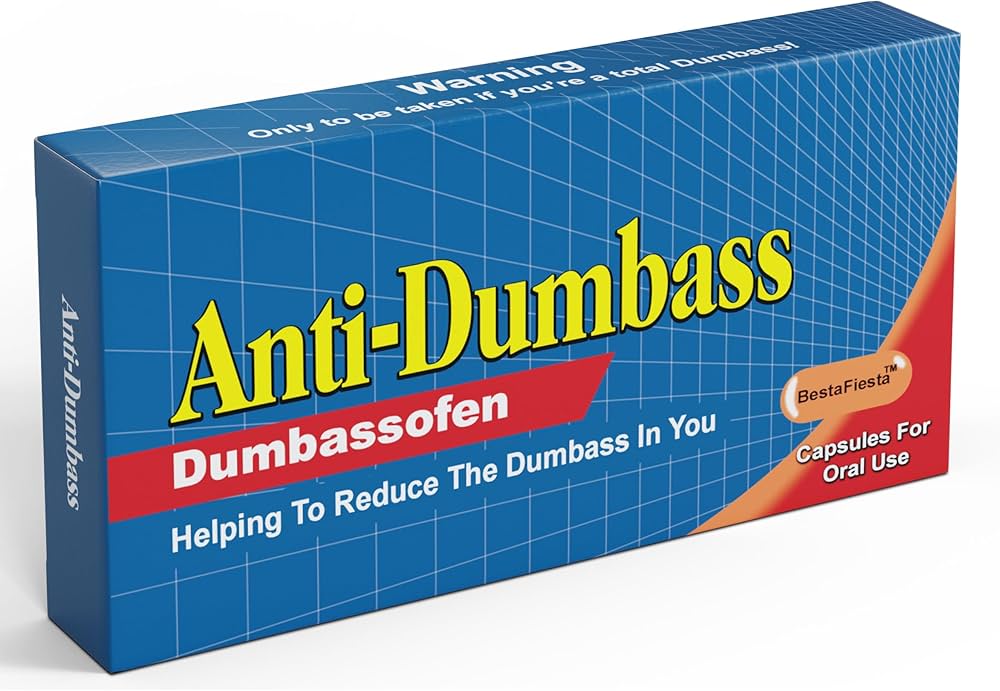
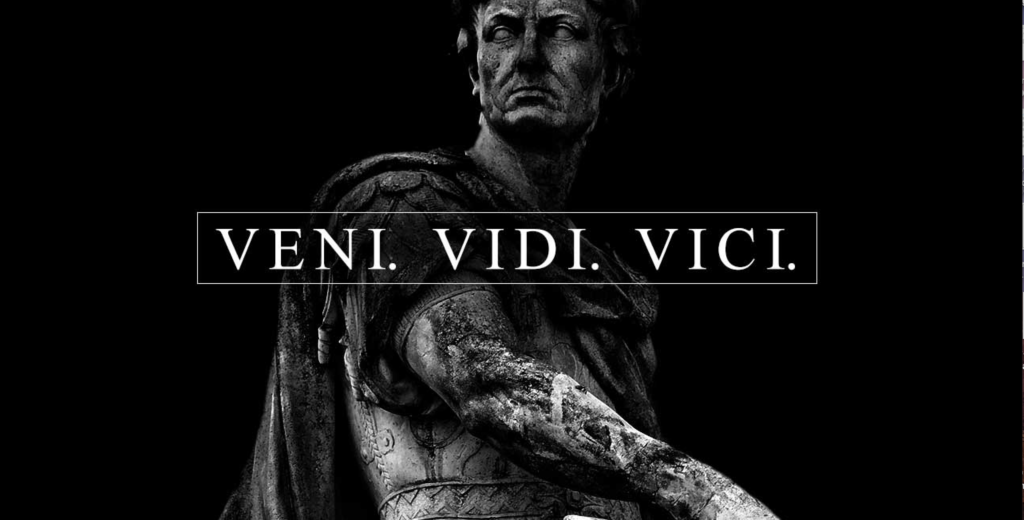
This Site is owned and operated by GoodShepherdMedia.net and corporate entity and is not for sale. Finders Keeperes Losers Weeperes property of Good News Media LLC

